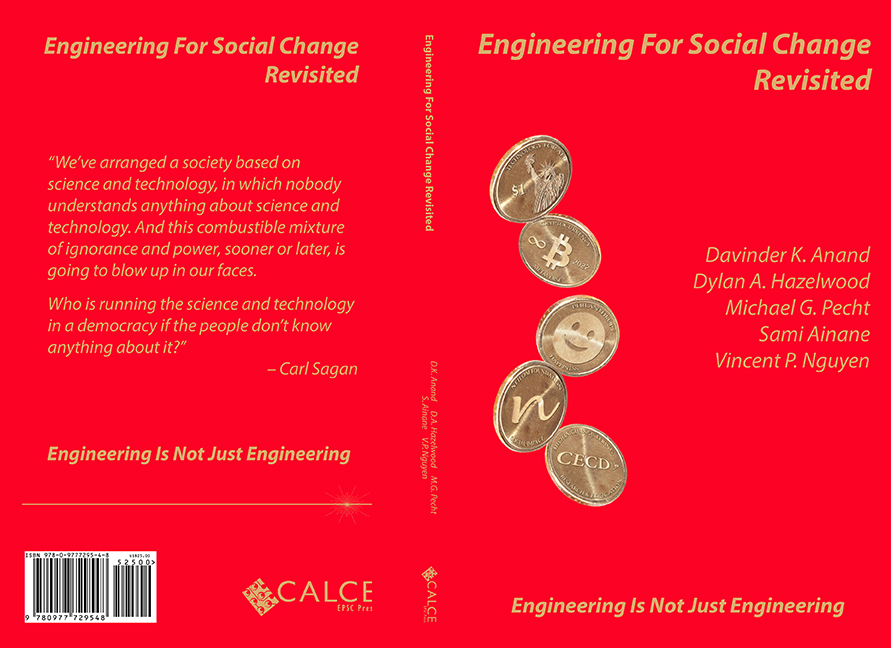
Engineering for Social Change Revisited examines key emerging technologies in areas that are already showing evidence of unintended consequences, and where significant social impacts are growing. Virtual reality, AI, bionics, IoT and other technologies are changing the way society interacts, even at a basic human level. How will we change as a society when new ideas like the metaverse, NFTs, cryptocurrency and deepfakes become commonplace, and our connections become more virtual and less physical?
It is clear that we can no longer focus engineering design with just technical considerations, but societal needs must be strongly integrated into design courses for engineers. Additionally, the consideration of philanthropy, nonprofits and humanitarian development by engineering students has gotten special attention. This has been enhanced by CECD’s ongoing connection with the Neilom Foundation to support student-driven philanthropy.
The book concludes with the observation that technology bringing happiness is a multifaceted process, and according to researchers, the solution for happiness may be simpler than a mountain of technology, data, and analysis. Ultimately, technology will be the main driving force for change, and we will not only have to adjust to our new reality, but also learn to master technology to benefit all of society while mitigating negative unintended consequences. In order to successfully address these challenges, we must be prepared with a unified approach – socially, politically, morally, and technologically.
Topics Covered
- Philanthropy through technology
- Social impact of emerging technologies such as AI, Metaverse, VR, bionics and others
- Technology, happiness and well-being
- Misuse of technology
- The impact of engineering on society
- Engineering education and design for all
For more information, or to obtain a copy of this book, please contact Dylan Hazelwood, Assistant Director of CECD, at dylan@umd.edu.
